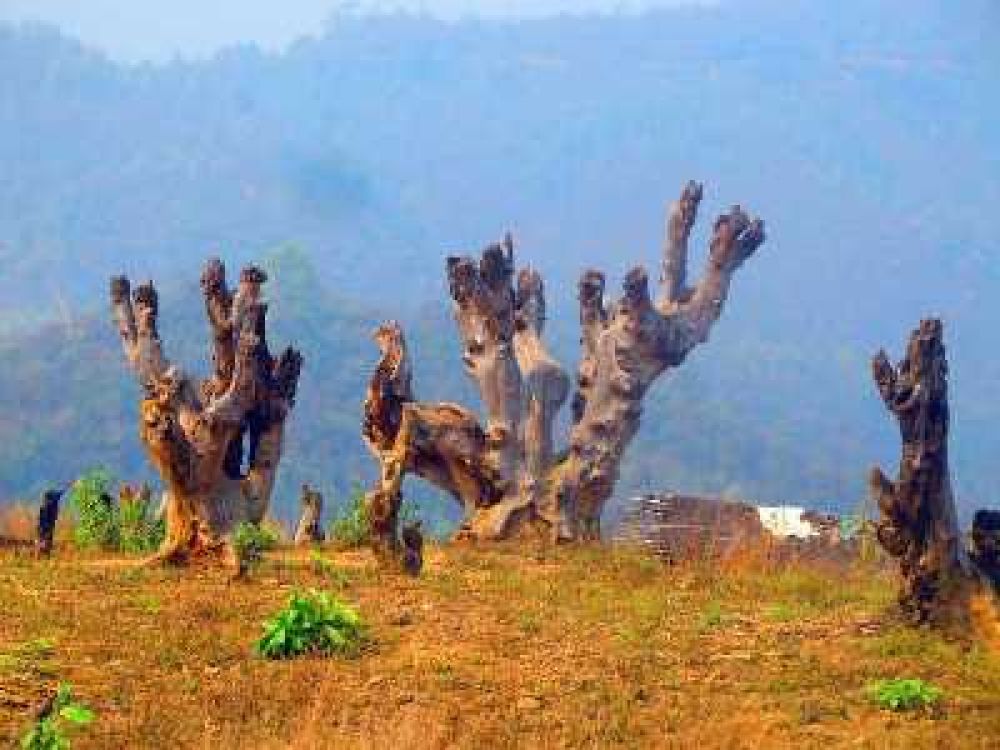

The village of Longtrok, located in the enchanting district of Tuensang in Nagaland, India, has long been a hidden gem waiting to be discovered by the intrepid traveler. The history of tourism in Longtrok is relatively recent, with Nagaland only starting to gain recognition as a tourist destination over the past few decades.
The advent of tourism in Longtrok can be traced back to the early 2000s, when the region began attracting adventure seekers and cultural enthusiasts. Initial visitors were drawn to the village's pristine natural beauty, its traditional Naga lifestyle, and the opportunity to explore the unspoiled landscapes of the Eastern Himalayas.
Longtrok holds significant historical importance for the indigenous tribes, especially the Ao Nagas. It is known for its six mystical stones that are spread across the village, each narrating the different phases of the Ao tribe's migration and establishment in the region.
The inception of the famous Hornbill Festival in the year 2000 has been a pivotal moment for Nagaland's tourism, promoting the cultural diversity and rich heritage of the tribes, including those in Longtrok. Although Longtrok is situated away from the primary venue of the Hornbill Festival, it still benefits from the increased interest in Nagaland's culture and history.
Today, Longtrok village has become part of the emerging tourism trends in Nagaland. Its picturesque landscape combined with the warm hospitality of the Ao tribe offers a unique experience to visitors. Eco-tourism and cultural tourism are now at the forefront, with emphasis on providing authentic and sustainable travel experiences.
Homestays have become the preferred form of accommodation, as they provide tourists a chance to immerse themselves in the day-to-day life of a Naga village. This grassroots approach not only supports the local economy but also facilitates cultural exchange.
The Government of Nagaland, along with several NGOs, has been working on developing tourism infrastructure and promoting responsible tourism practices in Longtrok. This involves training locals as guides, setting up information centers, and creating programs that focus on preserving the natural and cultural assets of the village.
While tourism in Longtrok, Tuensang is still in its nascent stage, its potential for growth is tremendous. With increasing awareness and responsible tourism practices, Longtrok can certainly carve a niche for itself in the world tourism map, offering an unparallel experience deep in the heart of Nagaland.